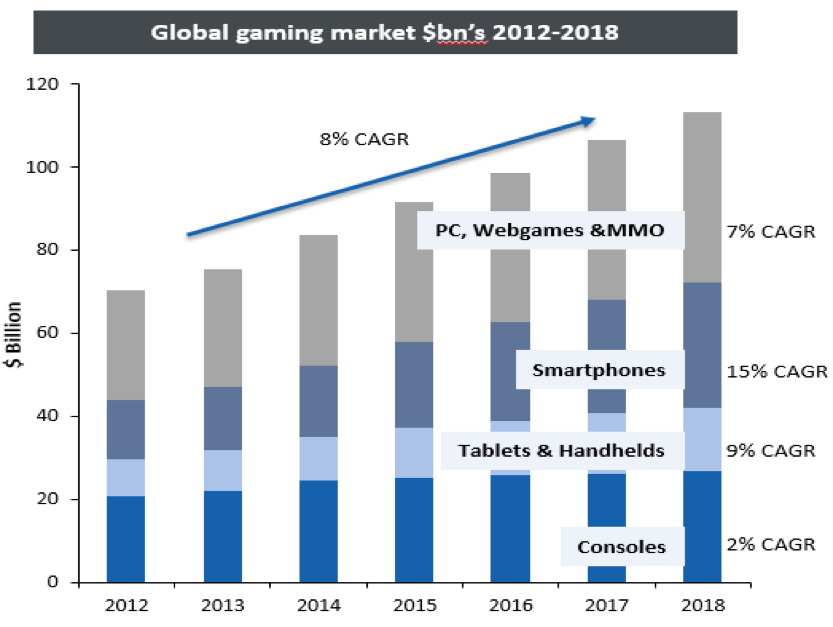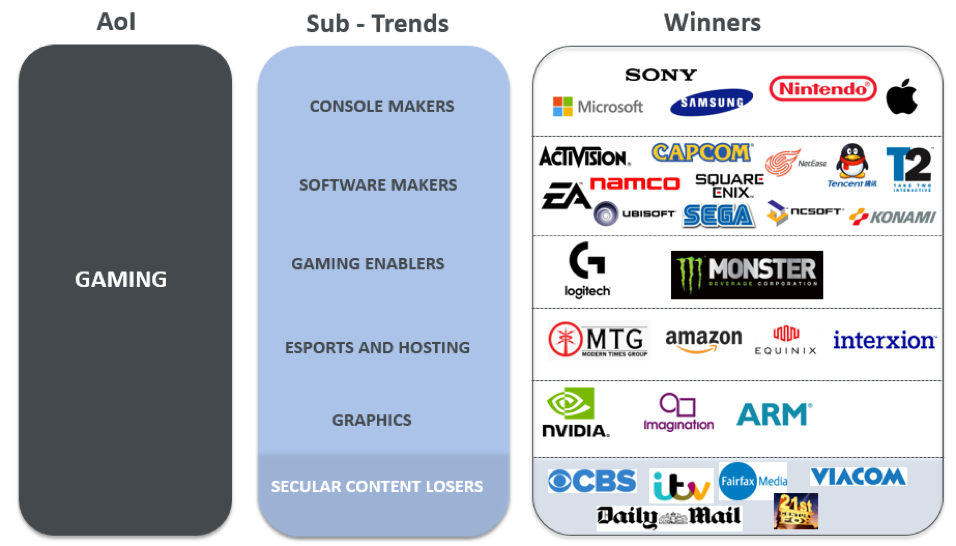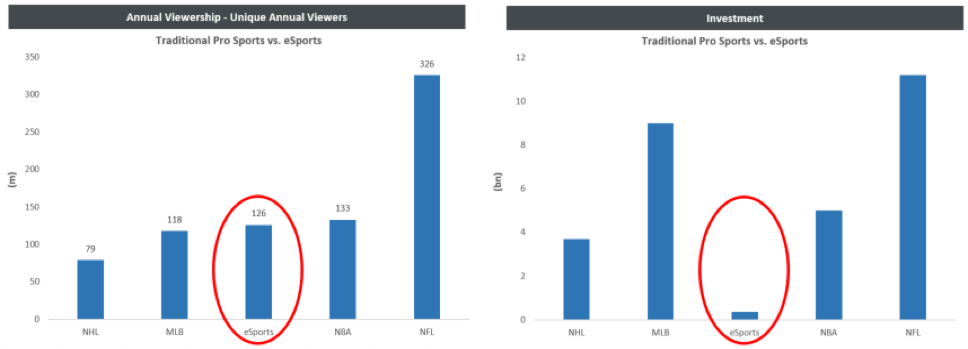Growth trend: The rise of gaming
Recently, the virtual world has infiltrated the real world in a massive way through Pokémon Go, or is it the real world entering sci-fi?
This augmented reality has unlocked yet another area of growth for video game publishers.
The growth in gaming is being driven by three key secular trends:
1) More screens
Smartphone/tablet penetration gives everyone their own handheld gaming device for publishers to target a much larger audience via casual gaming. Surveys suggest 92% of all smartphone and tablet owners play games at least once a week, 45% play daily, and industry estimates predict that in 2016 one-third of all global mobile gaming revenue will come from smartphones and tablets alone.
2) MMO (Massively Multiplayer Online)
Internet connected games allow players to play each other from all over the world, giving rise to huge playing communities in the top games. This is best exhibited by the rapidly growing eSports industry, whereby professional game players congregate in organised tournaments, playing for millions of dollars in prize money to sold out stadiums being televised on ESPN.
3) In-game purchases
Digitalisation also allows players to purchase more goods in the game while also allowing publishers to attract and retain casual gamers with initially free games. This effectively widens the gaming audience and also widens the revenue opportunity, while also extending the life of published video game titles beyond just annual releases.
The combination of these secular trends allows video game publishers to now leverage their content into sustainable communities of paying customers that, via network effects, will ultimately gravitate to the biggest and best games and hence most vibrant game communities. From an investment perspective, we see this as beneficial to the whole industry, but ultimately this is most beneficial to the largest and most sophisticated game publishers.
Pokémon Go
The Pokémon Go phenomenon is perhaps the best and most recent example of why the software makers appear the best-positioned companies. Pokémon is an established franchise in which a new game was developed by Niantic (ex-Google labs). The game was in development for two years, and the company received more than $30 million of funding from Google, Nintendo and The Pokémon Company.
Upon its release just a month ago it has been downloaded more than 100 million times, with an average playing time of over 30 minutes a day, making a meaningful dent in other mass user applications such as Facebook and Snapchat. The Pokémon Go phenomenon confirms what we have already seen from other developers such as Activision Blizzard, EA Sports, and Ubisoft and can be explained in two key principles:
- To create gaming communities of this size you need established intellectual property (i.e. known franchises) in addition to leading technical expertise and a large budget. These communities are no longer created by independent app makers that were fortunate enough to produce a viral game.
- Once the community is established, it will grow via player engagement and can be monetised over long periods of time. Games start out as free, but ultimately the ongoing success of communities such as Minecraft, Candy Crush and Clash of Clans prove the engagement and monetisation can extend for years, not just weeks.
According to Tech Crunch and Venture Beat, Pokémon Go has become the fastest app to top the Apple App Store and Google Play (beating Clash Royale), and in its first week became the most downloaded application of all-time on Apple’s App Store.
Consequently, we strongly favour the most established gaming software developers and their wealth of IP that they have built up over 30 years.
These companies alone have the best possibility of further monetising their gaming communities by moving into mobile, ‘freemium’ and competitive eSports opportunities.
The below data as presented by Activision Blizzard at their most recent capital markets day highlights quite strongly why we are firmly at the start of a significant structural earnings growth opportunity and one that will play out over many years to come.
At Munro Partners, through the Munro Global Growth Fund, we identify sustainable growth trends that are under appreciated and mispriced by the market, and the resulting winning and losing stocks. The Fund is currently invested in a select group of the names mentioned in this article. More info: (VIEW LINK)
2 topics





